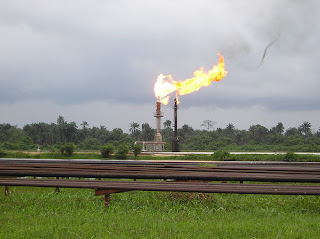Residents front the unruly, oil-producing Niger Delta region of Nigeria are bracing for increased violence in the area. Over what might you ask? Over oil. Rebels from the area have said they called off a ceasefire in response to a alleged attack by the Nigerian army on one of its territories.
The Nigerian army, being ill-equipped in both knowledge and equipment, has trouble in avoiding ambushes in the creeks and swamps of the Niger Delta, where the popular rhetoric of the militants has won them the support of the people in the area.
To further add to their problems, the Spokesperson for the main militant group, MEND (the Movement for the Emancipation of the Niger Delta), the group that has been holding two British citizens hostage for more than a month, has warned the oil industry to prepare for what it called "Hurricane Obama," beginning Saturday. January 31, 2009. It comes 5 months after the operation codenamed "Hurricane Barbarossa" in September 2008 in which they targeted oil units and directly attacked the JTF (Joint Task Force) of the Nigeria Niger Delta.
The Spokesperson stated that "Hurricane Obama"
“...will traverse the entire Niger Delta region and the attacks will be unconventional…Many of them (soldiers) will not see 2010 (and) it will begin Hurricane Obama. The government is complicating the already volatile situation by its extra-judicial killings and arrests."
READ MORE
He also stated that the beginning of "Hurricane Obama" would mark the end of the ceasefire completely.
READ MORE
“Grade this post”



